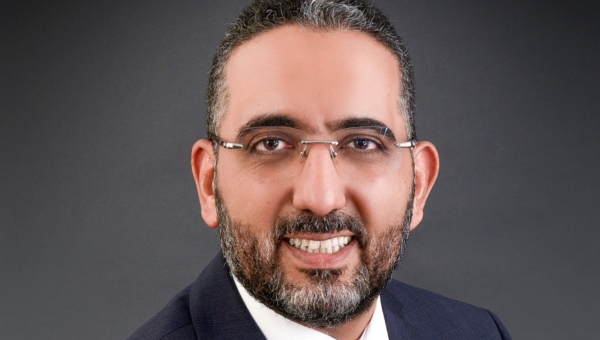
All News
Upcoming Events

Breaking Taboos in Lebanon, One Conversation at a Time!
Through the ISSM Global Outreach Grant, Drs. Sandrine Atallah and Gaël Abou Ghannam launched the “Mech 3ayb” Arabic podcast on women’s reproductive health.
💬 5 episodes released
👀 Over 189,000 views and counting
🌍 Available on Spotify, Apple Podcasts, and YouTube
The podcast is sparking essential conversations on women’s health and helping to normalize open dialogue across the Arabic-speaking world.
"This project means a great deal to us. As Arab women physicians, we are committed to breaking the silence surrounding topics like menstruation, fertility, postpartum sexuality, menopause, and vaginismus—topics too often left unspoken. With this podcast, we aim to offer accessible, culturally sensitive, and evidence-based information to thousands of Arabic-speaking women and the healthcare providers who serve them. This grant gives us the momentum and credibility to expand our impact and help normalize these crucial conversations." -Sandrine Atallah and Gaël Abou Ghannam
🎧 Listen now by clicking here.

Expanding Access to Sexual Health Education in Ethiopia!
Thanks to the ISSM Global Outreach Grant, Yehenaw Tadele Tenaw and team have successfully trained 267 healthcare workers through three impactful webinars on:
1️⃣ Sexually Transmitted Infections Management
2️⃣ HIV/AIDS in Ethiopia 2025 – Prevention, Treatment, and Stigma Reduction
3️⃣ Prevention and Response to Sexual Abuse
Workshops and media campaigns are now underway, strengthening sexual health knowledge and care across Ethiopia.
"Receiving the ISSM Global Outreach Grant is a tremendous honor and a vital opportunity for me and the communities I serve in Ethiopia. This support will allow us to address the significant unmet need for comprehensive sexual health training. The project is designed to be scalable and culturally tailored, combining nationwide online seminars with in-person workshops to ensure access for frontline healthcare providers,educators, social workers, and community leaders." - Yehenaw Tadele Tenaw
Learn more about the ISSM Global Outreach Grants by clicking here.

Existing studies from the US and Scandinavia detail the sexual behavioral patterns of gay, lesbian, and bisexual men and women. In the United States, gay and bisexual individuals are more likely than heterosexuals to have high rates of unsafe sex and sexually transmitted infections (STIs), as well as higher rates of sexual coercion over their life.

Background
Premature ejaculation (PE) is a sexual dysfunction that affects roughly 5-15% of men globally, of which definitions vary, but mostly consist of:

A yeast infection is the overgrowth of the naturally occurring fungal species, candida, and can occur for a variety of reasons. Yeast infections often present in the mouth or vagina, and on occasion can grow under the foreskin of uncircumcised penises. These are quite common in women, with 3 out of 4 reporting at least one yeast infection in their lifetime, usually in women of reproductive age.
In this ISSM Podcast episode, Marcelo Praxedes discusses sexual health and healthcare access for transgender individuals and the LGBTQ+ community. He explores the unique challenges faced when seeking care, the importance of sensitivity and training among healthcare providers, and the impact of minority stress on patient well-being. Dr. Praxedes emphasizes the need for multidisciplinary support before and after gender-affirming surgery and highlights the mental health realities affecting this population. Interview by Estela Citrin.
In this ISSM Podcast episode, Tanginika S. Cuascud discusses surrogate partner therapy as a specialized modality within sexual medicine. She explains how this therapy provides a safe, structured space to practice intimacy and sexual skills, particularly for individuals with sexual trauma, disability, body changes after illness or surgery, late-life virgins, and people affirming their gender. Dr. Cuascud outlines the sensate-focus–based methodology, the gradual, skills-focused process, and the benefits in building confidence, communication, and autonomy. She also highlights the importance of the triadic model involving the client, surrogate partner, and mental health professional to ensure safety and ethical practice. Interview by Estela Citrin.

Primary Sjögren’s Syndrome (pSS) is an autoimmune disorder in which certain cells malfunction and overpower the glands that provide lubrication to a variety of areas. Those with pSS may experience extreme dry eye and mouth, as well as an increased risk of getting infections of any kind.

Interview by Anna Carling
The ISSM is pleased to announce the appointment of Dr. Mohamed Arafa as the new Deputy Editor-in-Chief of Sexual Medicine Reviews (SMR), effective November 1, 2025.

In his new role, Dr. Arafa will work closely with the Editor-in-Chief and the editorial board to guide the journal’s scientific direction, uphold its rigorous peer-review standards, and further strengthen SMR’s position as a leading source of evidence-based knowledge in sexual health.
To mark this occasion, we spoke with Dr. Arafa about his long-standing connection to Sexual Medicine Reviews, his views on what defines a strong article, memorable papers that have shaped the field, and his advice for early-career professionals in sexual medicine.
Congratulations on your new position as AE! How long have you been following Sexual Medicine Reviews?
– Since its inception. I’ve been a member of the ISSM for more than 15 years and have followed all its publications closely.
What defines a good article in SMR?
– A strong article presents a clear aim, a solid methodology, and a balanced interpretation of findings. Transparency in the search process and selection criteria is also essential to minimize bias and ensure credibility.
Are there any articles that stand out to you as particularly impactful?
– I´d say that the guideline papers from the International Consultation on Sexual Medicine are among the most influential. I also remember The Incidence, Prevalence, and Natural History of Erectile Dysfunction by Dr. Ian Eardley from the first issue, and Benefits and Health Implications of Testosterone Therapy in Men with Testosterone Deficiency by Dr. Traish. Both of them left a lasting impression.
What advice would you offer to early-career professionals in sexual medicine?
– Be curious and critical, identify gaps in the literature and pursue research that addresses them. Always maintain the highest ethical standards, and embrace collaboration. I find that teamwork fosters innovation and enhances the credibility of your work.
How do you like to spend your time outside of work?
– Actually, I enjoy exploring new interests. Recently, I’ve taken up golf, which I find both challenging and relaxing. I try to read or listen to a new book every month, and I make sure to see a film at the cinema at least once a month. The Shining is a really good book and I liked the F1 movie.
Any final thoughts you’d like to share?
Sexual Medicine Reviews and its sister journals have played a vital role in elevating the field of sexual medicine, which was once underrepresented in broader medical literature. I’m proud to be part of the editorial team and to contribute to the journal’s continued growth and influence.
Background: Dr Arafa
Dr Arafa is a physician specializing in Andrology and Reproductive Medicine, currently practicing at Hamad Medical Corporation in Qatar. He also serve as a Professor of Andrology at Cairo University and as an Adjunct Assistant Professor of Urology at Weill Cornell Medicine–Qatar. Over the past 25 years, he has authored or coauthored more than a hundred publications in peer-reviewed journals. Adding to that he has served as a reviewer for several others. He is also active in national and international societies, contributing to the advancement of sexual medicine and the development of clinical guidelines.
This interview was conducted by Anna Carling for the ISSM. The article was prepared and edited in collaboration with the SMR editorial team.

Background
Post orgasmic illness syndrome (POIS) is a rare and poorly understood condition which is currently characterized as individuals falling ill following orgasm, usually continuing to feel ill for 2-7 days after. Currently, there are fewer than 100 reported cases in existing literature, and those reported have primarily been male patients. POIS has been reported to affect sexual function and satisfaction, making it an interesting new topic in the world of sexual medicine.

Penile dysmorphic disorder (PDD) is a subclassification of body dysmorphic disorder (BDD) and commonly characterized by a severe fixation on the appearance of one’s own penis, usually viewing minor or imagined problems as making it undesirable or “worse” than other penises. This can result in excessive grooming, self-help methods like using vacuums or stretchers, and sometimes going as far as multiple cosmetic surgeries. Additionally, PDD can contribute toward mental health disorders such as depression or anxiety and can even lead to impaired functioning in sexual and everyday situations.
The ISSM Membership Survey is now closed, thank you to everyone who participated!
The ISSM Membership Survey is your opportunity to shape the future of our global community. We want to hear what matters most to all our members and your input helps guide ISSM’s priorities.
Watch this short video featuring Kwangsung Park, Chair of the Membership Committee who shares why your voice is essential and how the survey helps us grow together:
“To continue growing as a global community, we truly need your voice and your perspective.” — Kwangsung Park
Let’s build the future of ISSM together.

